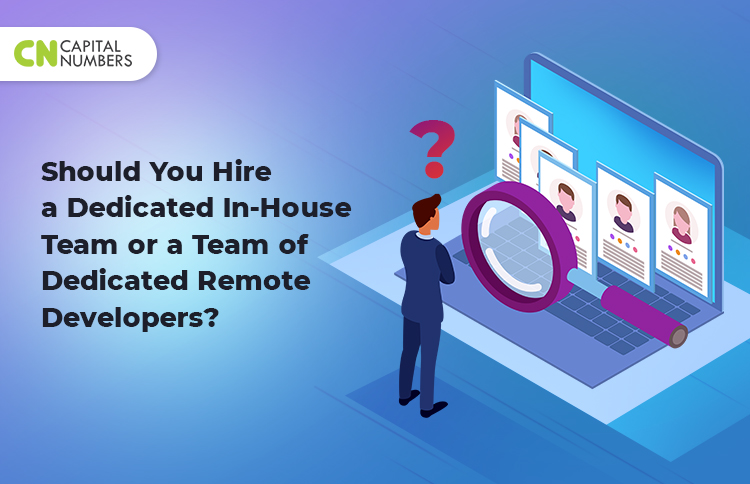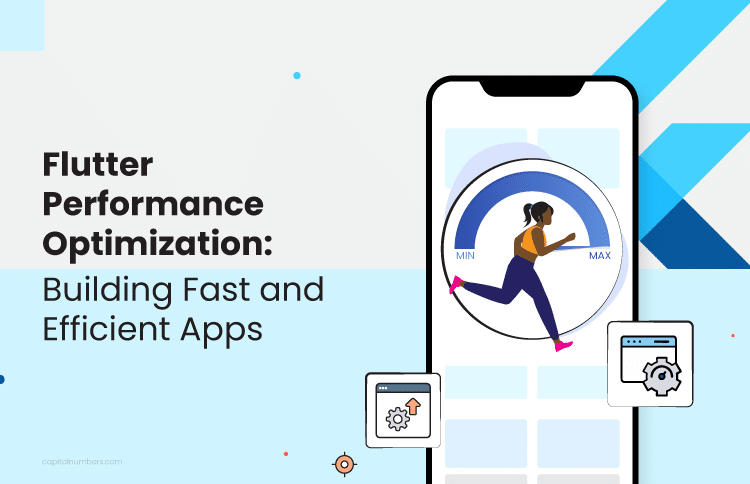Should You Hire a Dedicated In-House Team or a Team of Dedicated Remote Developers?
Table of Contents
Which is best for you?
The answer: it will vary from company to company. It might depend on the context of a given project. It will also depend heavily on which stage of business your company has reached. So although we would love to, we can’t just tell you exactly who you should hire and why.
There are, however, some things you should consider.
First, it’s very to consider the needs of your company right now— not where you want to be in the future. You might eventually want multiple locations in major cities across the nation, staffed completely with in-house employees. However, if you are currently a beginning-stage startup, you’ll have to focus not on size but on speed. As you grow, you’ll have to shift your focus.
A related but separate second point is that your hiring model will change and shift as your company grows. What you start with will probably not be what you use to grow. For example, are you just now building an MVP? That’s an entirely different process from maintaining your fully developed commercial software. You will adapt over time, so what you start with is going to be about testing and refining the process, while what you finish with might require a more long-term solution.
All that being said, here’s a high-level overview of hiring an in-house team vs hiring a dedicated remote team.
The In-House Model
The exclusively in-house model is starting to go out of favor because of its expense and lack of flexibility. It’s quickly being replaced by fast, capable remote teams, for the reasons outlined below. Nevertheless, there are still a few benefits to the in-house model. Here they are:
In-House Team Benefits

Building a Company Culture:
A company culture doesn’t just spring up overnight. It’s built up over months and years of the same people working very closely together. So if company culture is important to you, you’ll develop it across the long term across an in-house team. You will go out to eat and spend time after work together, you’ll spend some weekends together, and for eight hours out of the day, you’ll be working together. That’s way too much for some people, but if it’s important to you, building a permanent in-house team allows you to do just that.
Depth of Product Knowledge and Expertise
Due to all the hours spent working on projects together, your in-house team will have a depth of product knowledge and experience outsourced developers can’t match. On the other hand, this same depth of knowledge will often translate into “tunnel vision” when it comes to creatively finding solutions to problems. For example, one problem with in-house teams is that they might only know one way of doing things and follow that dogmatically. Nevertheless, the longer a certain team works on the project, the more familiar they get with its specifications.
Skill Growth
As your team grows in experience, your in-house employees will acquire greater skills. You might be the one to pay for them — buying coaching packages or courses to help them “level up,” but the value they provide over the long term will undoubtedly pay off.
On the other hand, the in-house team certainly does come with its share of drawbacks.
In-House Team Drawbacks
Price
Permanent in house employees are more expensive than offshore or remote developers. The value they offer in exchange has become more dubious, especially when you can hire their counterparts from a different country for a much lower salary. Not to mention, they’ll also need benefits, insurance, office space, vacation days, etc etc. All of these affect your bottom line.
Skill Ceiling
Lots of developers are graduating from college and going into the field without much of a competitive advantage. So the question you have to answer is, if you’re going to pay someone $85,000, what is that wage going towards? What makes that particular developer stand out from their peers? Chances are, one in-house developer is pretty much like another. You’ll have to vet very carefully to get one that offers you exactly what you need. And even then, there are no guarantees.
Work Interruption
In-house teams take a lot of work to replace and they are certainly not replaceable on a short notice. If someone has a baby, takes time off for a vacation, is sick for an extended period of time requiring hospitalization, they’ll be unavailable to work on the project. You’ll have to replace them for the time being, or face massive delays. That means going through the vetting and training process all over again.
Dedicated Remote Team
Remote Team Drawbacks

Onboarding Time
Your remote developers are coming into the project brand-new. They will probably not be as intimately familiar with your product as an in-house team would be. On the plus side, they might have worked on very similar products, Some small projects might take only 48 hours to get up and running, but larger, more in-depth projects may take 2 weeks of communication, consultation, and onboarding.
Constant Communication
You will need to be in touch with the project manager and remote team as much as possible during the onboarding stage so they can really start to deeply understand your company and your product. The closer the communication during the beginning stages, the better the final outcome. This will also set a precedent for the entire project — starting out with good communication habits will help complete the project with a minimum of delay and wasted time.
In-House Team Benefits:
Variable Pricing
A good remote outsourcing agency will work with you to determine the price that best suits the needs of your particular project. It might be an hourly price. It might be a design and build a model. Whatever you choose, it will probably be much more flexible than the salary given to in house employees. It will also probably be much, much more cost-effective.
Flexibility in Hiring
You will be able to vet, interview, and train the staff your agency chooses for you. A really good remote agency will actually take it a step further and have stringent interview processes in place to make sure you’re only talking to qualified candidates. Furthermore, if a team member calls in sick or goes on vacation, they can be replaced within 24 hours usually.
Established Teams
Even though it might be their first time working for you this will not be your remote team’s first time working with one another. In many cases, they will have been working together, under the same project manager, for years. So while they might need some time to understand your project, the speed and effectiveness with which they work together will match your in-house team.
Greater Talent Pool
Hiring remotely opens up your possibilities when it comes to available talent and skill sets.
Conclusion
The truth is, you don’t necessarily have to choose one over the other The best thing to do is to hire a core in-house team of experienced professionals to form the backbone of your startup. For example, you might want an experienced Senior Developer to advise you on product functionality. You can hire remote teams as the project requires. A core in-house team, with work outsourced to a dedicated remote team, is the most flexible model because it’s more cost-effective and quicker. Plus it will also allow you to easily scale up as your company grows.
Do you have a project you want to discuss? Please feel free to get in touch. We are recognized as a Top Website Design Company on DesignRush.














